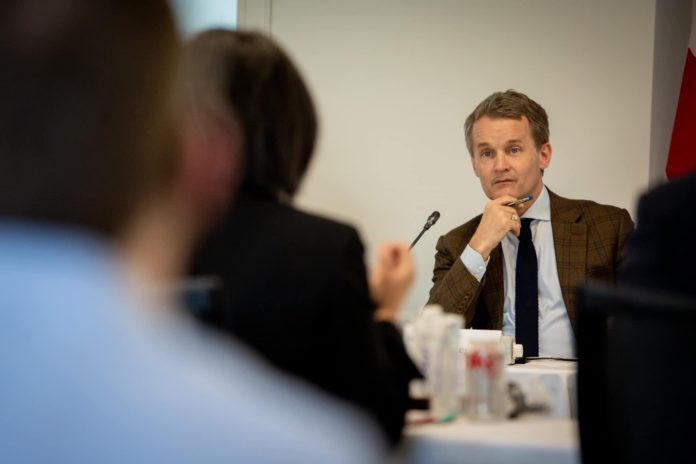

Canadian post-secondary students who receive federal student loans won’t have to start paying them back until they earn a minimum of $40,000 per year, according to Canada’s labour minister.
Seamus O’Regan and Saint John-Rothesay Member of Parliament Wayne Long met with students and faculty at the New Brunswick Community College in Saint John, N.B. Thursday, where they highlighted the federal government’s plans to help students.
“We need to create more opportunities for young people starting this year and if we could alleviate some of that burden, then we will,” said O’Regan.
It comes after the federal and provincial governments announced they would eliminate the interest accumulated on student loans. The federal government will also increase the zero-payment income threshold for single-person households to $40,000, indexed to inflation.
In addition, Ottawa has proposed doubling the Canada Student Grant to provide youth with up to $6,000 annually until July 2023.
“You don’t have to pay anything on that student loan until you’re making [$40,000], and after you make 40, we’re going to lower the interest rate from there on in,” said O’Regan.
“We’re going to look after you.”
Employment and Social Development Canada, the ministry responsible for employment in Canada, said the cap on monthly payments also lowered from 20 per cent to 10 per cent of a borrower’s household income.
“We want to continue giving young people the tools needed to set you up for success and set you up for the future,” said Long at the event in Saint John, N.B.
“When we invest in you, we’re investing in Canadians.”
O’Regan also announced an investment of $802 million in the federal government’s youth employment and skills strategy, which aims to help graduates find jobs once they finish school.
Long said Canada needs youth to join the workforce as quickly as possible, noting it’s no secret that there will be a “major void” in workers coming up in the next five to 10 years in southern New Brunswick.
O’Regan agreed with Long and told the crowd at NBCC that Canada has “a big problem” in that the country’s workforce doesn’t “have nearly enough [young people]. ”
“We want young people in this country to be focused on getting the training they need to get a good job,” said O’Regan.
